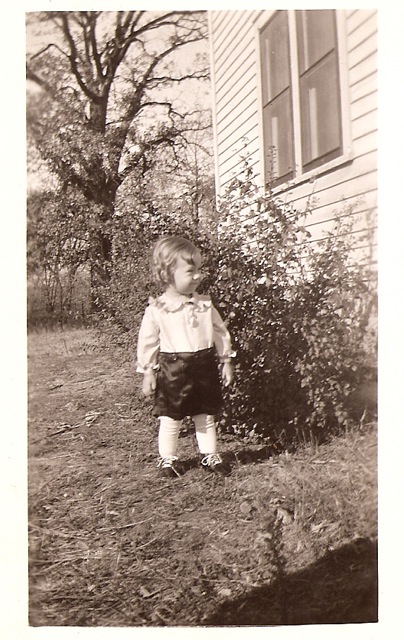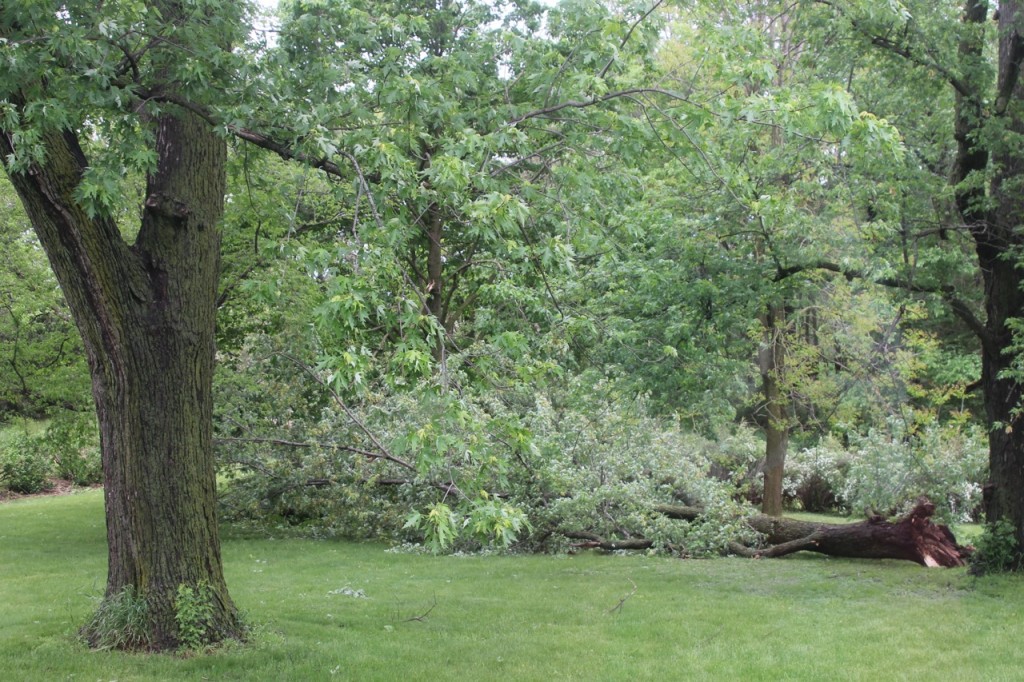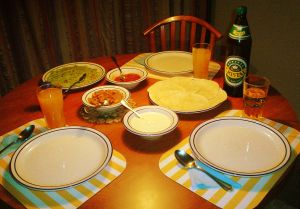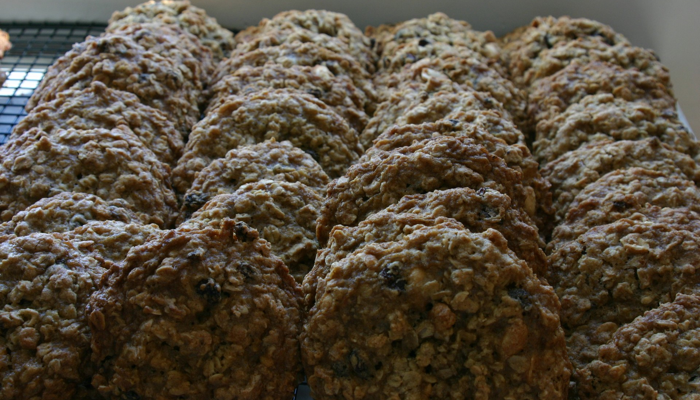
by jphilo | Nov 24, 2014 | Reflections on the Past
 You know how certain family members tell the same stories at every family gathering? And it’s all you can do to keep from rolling your eyes and drifting off into a carb-induced coma? This chapter from Lessons from My Father may give you a new perspective about the stories you’ve heard a hundred times…
You know how certain family members tell the same stories at every family gathering? And it’s all you can do to keep from rolling your eyes and drifting off into a carb-induced coma? This chapter from Lessons from My Father may give you a new perspective about the stories you’ve heard a hundred times…
Mining the Past
It is in the last days that you have stored up your treasure!
James 5: 3b
I gazed at the black and white photograph in the ornate standing frame. “Jolene, that’s your dad,” Mom informed me.
“No, sir, Mom. That’s a girl. Quit fooling.” The picture of the wide-faced child with chin length blond curls confirmed my opinion. “Look, Mom, she’s wearing a ruffled shirt. That’s not my dad.”
“Yes, it is, Jolene. Look at the short pants. That has to be a boy. Girls only wore dresses back then.”
“Mom, you’re teasing. Cut it out.”
“I’m telling the truth. Take the picture and go ask your dad if you don’t believe me.”
I grabbed the picture and headed for the kitchen where Dad and Clarence, our neighbor, were drinking coffee. “Dad,” I budged in, interrupting their conversation with childish self-righteousness. “Look at this picture.” I was brimming with eight-year-old superiority. I knew I was about to prove my mother wrong. “Mom thinks this is a picture of you. She’s crazy, huh?” My eyes moved from the picture to his face, awaiting his agreement. “That’s a picture of a girl, right?”
His eyes crinkled and his face contorted into a sheepish grin. “Well, Jo-Jo, I hate to admit it, but this time your mother is right. That is me.”
I was speechless as I looked from picture to person and back again. My thoughts were racing. Blond curls to straight brown hair…can’t be. Ruffled shirt, RUFFLED SHIRT to plaid flannel…impossible. Smooth, white cheeks to blackish whiskers…no. And from short little pants to farmer trousers…no way. I found my voice. “Dad, how could ya let your mom dress you like a sissy?”
He and Clarence swallowed their smiles. “Well,” he said, “Obviously, you didn’t know my mother. She really wanted a girl.” He didn’t elaborate.
I picked up the picture, not eager to return it to my mother, in whose presence I would be forced to eat crow. I headed down the hall. “Hey, Jo,” Clarence yelled above my feet stomping down the hall, “when you coming over to my yard with the salt shaker again? The robins are everywhere.”
“I’m not coming ever again.” Clarence had convinced me, a few years before, that if I sneaked up quietly behind the robins in his yard and sprinkled their tails with salt, I could catch one and take it home as a pet. I spent hours in his yard clumping along, shaking salt, to no avail. I gave him an afternoon of entertainment, my mother was rewarded with a child-free work time, my family received a handy little nugget of humiliation ammunition, but I went home empty-handed. I didn’t appreciate this reminder of my legendary gullibility, for it forced me to eat robin along with the crow my mother would soon dish up. She knew I hated casseroles.
“Well?” Mom watched me bang the picture frame on the dresser. “Careful, Jolene, that’s an antique.”
“Mom, what kind of woman was my grandma dressing a boy like THAT?” I felt like spitting feathers.
“She was a wonderful woman, Jolene, and your father was her only child. Shortly after that picture was taken, your grandpa had your dad’s hair cut short, and he always looked like a boy after that. Someday, I’ll find those pictures and show you.”
Once she brought them out, I was entranced. I loved those pictures of my father with his parents. They all looked so happy, my father obviously the center of both his parents’ worlds. Cyril and Fern stand proudly on either side of him, hands on his shoulders, touching him as if to see if he is really there, that this young life is truly their son. I looked at the pictures and wanted to know the stories behind them, information my mother couldn’t supply.
My father, normally so talkative and forthcoming about the past, was reticent about his childhood and his parents. He had lost them both in the last ten years, and now I wonder if his grief kept him from telling me his stories. He shared only a few silly tales about Virgil, his imaginary brother, and their adventures. With his parents dead and no siblings, the details of his childhood remained a mystery to me, with just a few snapshots to bring me clues. I was too young to realize that had I probed more deeply, I could have eased his grief and learned about his life while time remained.
“What are you thinking about, Dad?” I whispered some years later. I had just come home from school and found him in the living room, staring at the wall again. His eyes were unfocused, his mouth slack as the thumbs of his clasped hands moved up and down, up and down, in hopeless motion.
“Oh, hello. What’d you say?”
I had jolted him out of his reverie, disorienting him slightly. “Just wonderin’ what you were thinkin’,” I tried again.
“Oh, nothin’. Just rememberin’ the time when Jim Christy and I…say, Jo, do you remember Jim?” He was eager to tell me of his escapades, but I shook my head,
“No, I’ve never heard of Jim, Dad.”
“No? Well, he musta been before your time. Jim and I were showin’ our heifers at the Story County Fair. You remember where the cattle barn is?”
I shook my head again. “Dad, I never lived in Nevada, remember?”
“Guess you’re too young.” Frustrated by my inability to join in his memory, he gave up on his story. “Anyway, twasn’t much.” The eagerness drained out of his voice and trailed into nothingness as a gulf of time yawned between us.
“OK, well, guess I’ll start supper.” I retreated to the kitchen. As I backed away, I watched his shoulders slump, his eyes go blank, and his thumbs resume their useless movement. He left me sinking back into the dead memories that could bring to him comfort that I, a living child, could not provide. Wrapped up in my high school life, I couldn’t comprehend the treasure he was hiding from me. I did not know that I should nod and listen and share in his memories until they became a part of mine.
“Dad, I’m home,” I announced four years later, sticking my head into his bedroom. He lay there, motionless with his eyes closed, but he popped them opened as soon as I spoke. “Do you need anything?”
He shook his head.
“Have a nice nap?”
“Oh, I wasn’t asleep. I was thinking about…” Here he stopped, and his face grew animated as memory flooded in and invigorated him. He snorted a laugh. “…I was thinking about when Red Goblet and I…”
“Red Goblet!” I exclaimed with all the superiority of a college co-ed. “Red Goblet! Who’d name a kid a something like that?”
“Well, Red and I were playing football at Westmar, and…”
“Speaking of Westmar, Dad, I would love to hear your story, but I gotta get ready for play practice in a little bit, and I have to finish my costume. See you.” I kissed him on the head and walked into my present, and out of the past he offered to me. He closed his eyes and returned to the football field of his day dreams. The value of what he held was priceless, but I had no desire to hold it. My adulthood was just beginning, and I had no time to honor his.
“Harlan, Dad, hello,” I entered his room at the nursing home. “It’s me, Jolene.”
He looked at me impassively, not sure who I was. Nine years had not changed me as much as it had him, and still he could not connect my face with his life.
“I’m Jolene, your daughter, the second one.”
A smile lit his face. “Hi, Jole…” His voice trailed off before he could say my name.
“How are you, Dad?”
“Fine, I’m fine, I….” His voice drained away, his train of thought broken.
“Here’s Allen, my son.”
“Hi, Grandpa,” he piped, standing on tiptoe to be seen above the rails of the bed. Grandpa’s eyes wandered down to the source of the voice. Laughter filled his eyes as he looked at my child.
“Dad, we’ve been telling Allen how you used to judge cattle.”
Allen nodded and adjusted the cowboy hat perched on his round head. “I wanna be a cowboy, Grandpa. See my boots?”
Dad’s eyes grew bright, and I could see a memory stirring within him, carrying him to the past, firmly anchoring him there in a way the present could not. A lopsided grin puddled on his face, and he fixed his eyes upon mine.
“Can you tell him how you first showed cattle? Tell him what it was like when you were a kid.” Allen looked at his grandpa’s face, eager to hear the story he’d heard fragments of before.
“Well, it was….Story County…maybe a….” Dad stopped, thinking hard. “It was a…ba..b…” He looked at Allen, startled, newly aware of his presence. Then he looked at me and drifted back into the confusing present. Then his thoughts sailed away from him before he could frame them into words. I could see in his frantic eyes that he couldn’t remember what I had asked, couldn’t remember what he was going to say, couldn’t even remember who these strangers were beside his bed.
Allen waited patiently in the small room as the battle to recover and share the past waged in my father’s weary and injured brain. Dad closed his eyes, worn out by the task I had lain upon him. “Mommy, is Grandpa too tired? Does he need a nap before he tells me the story? Can we come back when he wakes up?”
I nodded and kissed my father’s forehead. Then I took my son’s hand in mine and left my father guarding his elusive treasure.
Too late I realized the value of my father’s past, how it needed to be passed on to my child. When I reached out to mine the wealth of memory within him, the door that had been so slowly closing inside of him clicked shut and locked me out.
Neither of us knew where to find the key.

by jphilo | Jun 2, 2014 | Church Newsletter Columns

And he said to the people of Israel,
“When your children ask their fathers in times to come,
‘What do these stones mean?’
then you shall let your children know,
‘Israel passed over this Jordan on dry ground.’ “
Joshua 4:21–22
Our family spent part of Memorial Day weekend decorating graves at cemetery where my dad and his side of the family are buried. In years past, Mom took Dad’s two elderly aunts and helped them complete the task. Mom would drive from headstone to headstone while the aunts told family stories stretching back to the Civil War. Now, the aunts are gone. Now someone in my generation does the driving while Mom sits quietly trying to pass along the stories.
But every year, her memories grow more fragmented. Every year, I wish I’d paid more attention and rolled my eyes less when Mom and the aunts told their stories over and over and over. Every year, my siblings and I try to piece the remaining fragments of Mom’s stories into a patchwork of remembrance. Every year, our resolve to pass along that patchwork to our children and grandchildren becomes more pressing.
Because our family history matters.
Because old stories matter.
Because that history and those stories are the substance that holds families together.
God knows the importance of shared memories. He created us for remembering. Not only that, he instructs his children to pass on their memories of family and faith and of God at work to new generations.
In Joshua, he commanded the Israelites stack stones of remembrance beside the Jordan River. The commemorative stones weren’t erected as an altar, but as a conversation starter by which stories of God’s faithfulness could be be passed on to future generations.
In the book of John, the author says he wrote the story of Jesus “so that you may believe that Jesus is the Christ, the Son of God, and that by believing you may have life in his name.” (John 20:31)
In 2 Peter, the apostle explains why he continually repeats what Jesus did and said while he was on the earth. The reason, Peter says, is simple: “…so that after my departure you may be able at any time to recall these things.”
God made us to remember. He made us to remember by sharing our stories with one another, especially with our children and their children. By sharing the stories of our lives.
The stories of the lives of loved ones who came before us.
The stories of God at work among our ancestors and among us.
The stories orchestrated by God to bind us together as individual families, extended families, and families of faith.
So this summer, take advantage of the long hours of evening to share stories. Unplug the computer, turn off the tablets, and ditch your phones. Pull out the photo albums. Gather your starry-eyed youngsters and your eye-rolling teens around the table or a campfire. Tell your family stories. Tell stories about God at work in your family’s history. Take time to pass down your faith, one story at a time, so those who love you will find their faith strenghtened and will remember your legacy of love long after you’re gone.
Photo Source: lkunl at www.freedigitalphotos.net

by jphilo | May 28, 2013 | Top Ten Tuesday

The prediction of thunderstorms throughout the weekend proved 100% accurate. It rained all day Saturday, started again Sunday afternoon, and finished with windy flourish Monday morning. But the weather didn’t rain on our family parade as these 10 good things about a rainy Memorial Day Weekend show.
10. Any remaining drought worries were washed away.
9. The family rhubarb supply is secure for several more weeks.
8. This morning’s wind provided a free tree trimming. (See photo above)
7. We discovered that barbecue baby back ribs are as delicious slow-baked in the oven as on the grill.
6. Morning rain on the roof feels so homey…especially when all your chicks are home and under that roof for the weekend.
5. Rainy days mean board games. Hooray!
4. No one wishes they were outside enjoying good weather rather than indoors sorting family pictures and documents according to plan.
3. A rainstorm is a good reason to drink another cup of coffee at Panera’s before going to put flowers on graves.
2. Rain-soaked earth makes pushing plastic flower stems in the dirt in front of family graves a very easy task.
1. The weather makes a person more thankful than ever for the soldiers who braved all sorts of weather to ensure freedom for the citizens of our country.
Do you have something to add to the list? Leave a comment!

by jphilo | Apr 17, 2012 | Top Ten Tuesday

Have you heard or read the studies about the studies that say family mealtime is the an important factor in the future well-being of children? That eating meals together is an effective deterrent against drugs, smoking, alcohol and the like? Those studies weren’t around when our kids were little, but we had a few reasons of our own for eating together at least once a day. This weekend, when some of our kids were here visiting, a couple more came to mind. So here are my top ten reasons families should eat meals together.
10. The table doesn’t accumulate as much junk if it has to be cleared before supper.
9. Setting and clearing the table provide opportunities to earn stickers on chore charts.
8. Someday all that table setting and clearing will lead one of your children to believe parents only have kids because they want slaves to do all their work.
7. How else are little boys and girls supposed to learn knives can be used for more than stabbing bad guys?
6. Mealtime provides a captive audience for telling goofy family stories and thus preserving family history.
5. Mealtime is a perfect venue for creating new family stories – perhaps a story about a daughter who frequently fell off her chair or a son who found giggles in the applesauce.
4. Kids who eat meals with their parents want to know how to cook what they’re eating.
3. Kids who eat meals with their parents learn to cook what they like to eat.
2. Kids who eat meals with their parents eventually cook supper for their parents.
1. Once the kids are cooking meals, the parents have accomplished the ulterior and secret motive of getting the kids slaves to do all their work.
What do you want to add to the list? Leave a comment!

 I’m at Family Camp in Idaho this week. The food here is always fantabulous, so today’s recipe features a camp favorite previously posted here on Gravel Road.
I’m at Family Camp in Idaho this week. The food here is always fantabulous, so today’s recipe features a camp favorite previously posted here on Gravel Road.




